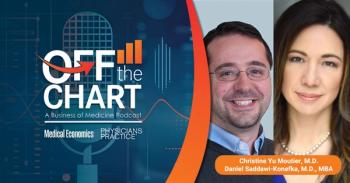
I'm in a Standards Frame of Mind
Most organizations do not provide incentives to standardize data management tasks in a way that takes advantage of existing data sources, avoids duplicating data elements, and organizes data in ways that facilitate exchange with other facilities and organizations.
Standardization schemes can be roughly divided into two categories. Some specify the means and trust that if everyone employs the same means then the end result will be standardization. Others specify the desired end result and leave the choice of means to each participant. Would-be standardizers have a propensity for specifying means rather than ends. Some examples may be illustrative:
• The emergency medical services agency in a large county desired to collect data about ambulance runs from all participating emergency rooms. Many of the data elements they wanted were already being collected by each facility as a part of normal operations. The agency could have simply published a specification of the required data elements and format, leaving each facility to gather and submit the data. Instead they spent a year developing (at great cost) a specialized application that each facility was required to use to collect the data. The application required more computing power than was available on the PCs of the day. In addition to requiring each facility to hire additional staff to perform duplicate data entry, the actual process was so slow that the facilities could not keep up with the volume of data, so the reporting was chronically behind schedule. Within several years, a number of emergency rooms dropped out of the emergency medical system. The added overhead may have actually exceeded the reimbursement that they received for handling the ambulance cases and may have contributed to the decision to quit.
• Using a regional vaccine registry requires clinic staff to re-enter all vaccine-related information after charting it and entering the vaccine orders into their order management system. The number of patients that the clinics have been able to see on a daily basis has decreased in parallel with the added workload assigned to the nurses.
• A large teaching hospital records information about its physicians in the hospital information system, the door access system, the parking permit system, the payroll system, the telephone directory, the medical staff office, the graduate medical education office, a hosted application for processing resident evaluations, and a separately hosted application for maintaining on-call schedules. It also assigns each clinician as many as 10 or more separate passwords to access these various systems. In spite of having collected all this data, the institution is unable to quickly determine which physician is, or was, responsible for each patient's care.
The unavoidable conclusions are:
• There is apparently no innate tendency to seek out and adhere to standards. Most people do not seek, nor do organizations provide, an incentive to implement data management tasks in a way that takes advantage of existing data sources, avoids duplicating data elements, and organizes data in ways that facilitate exchange with other facilities and organizations. People prefer to get their work done in a way that they consider to be expedient and within their capabilities.
• People and organizations do not develop the instincts to recognize and exploit opportunities to standardize.
• Without the instinct, inclination, knowledge, and resources to standardize at home, effective standardization at the state or national level will be a long time coming, mandates or no.
Daniel Essin, MA, MD, FAAP, FCCP, is a regular contributor to the Practice Notes Blog. He has been a programmer since 1967 and earned his MD in 1974. He has worked at the Los Angeles County and USC Medical Center where he developed a number of internal systems, chaired the Medical Records Committee, and served as the director of medical informatics. His main research interests are electronic medical records, systems architecture, software engineering, database theory and inferential methods of achieving security and confidentiality in healthcare systems.
Newsletter
Optimize your practice with the Physicians Practice newsletter, offering management pearls, leadership tips, and business strategies tailored for practice administrators and physicians of any specialty.








